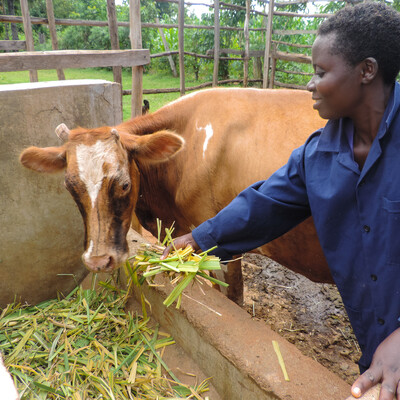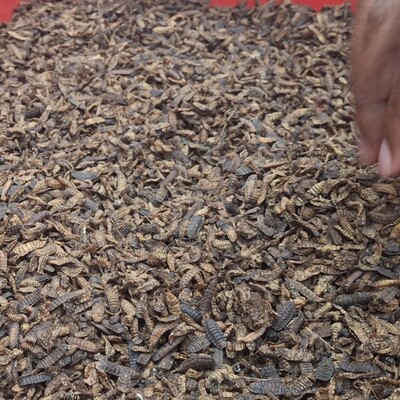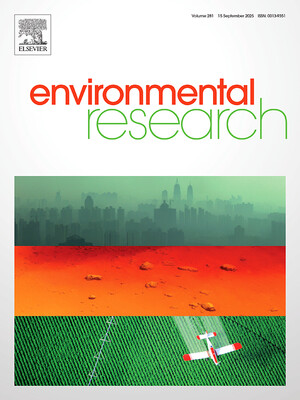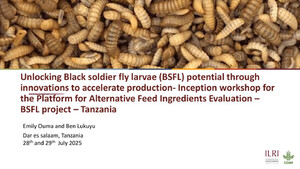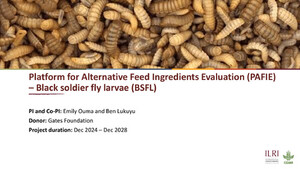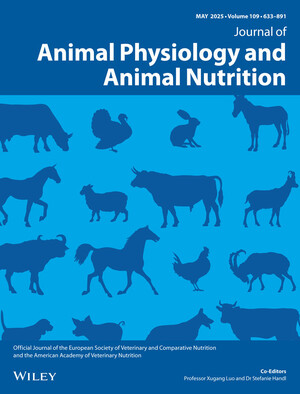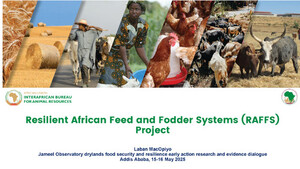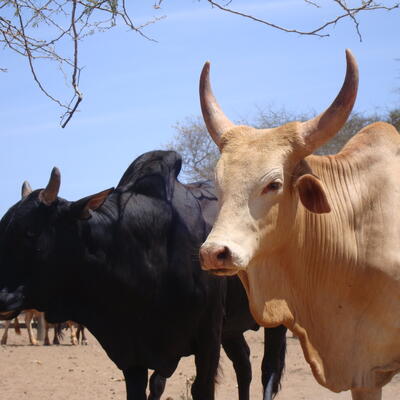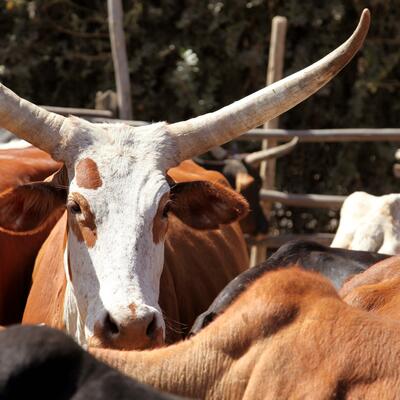
ILRI’s feeds and forages program trains Ethiopian agricultural researchers on forage seed production
Experts from the Feed and Forage Development program of the International Livestock Research Institute (ILRI) conducted training on forage seed production for technicians from various Ethiopian agricultural research centres on 21–25 October 2022. The exercise, which included theory and practical sessions, took place at the Bishoftu genebank forage seed regeneration site, located at the Ethiopian Livestock Development Institute.
As part of the CGIAR Initiative on Sustainable Animal Productivity, the training was tailored to develop the knowledge and skills of the national agricultural research systems (NARS) forage experts, from establishment to production, harvesting, drying, processing, quality assurance and storage of forage seed. This will support the production of quality seed at the research centres and its availability to farmers and private seed companies, thereby increasing livestock productivity and improving return on investment.
The 14 trainees were nominated by the Ethiopian Institute of Agricultural Research (EIAR) and regional research institutes. The trainees were from from the agricultural and livestock research centres of Melkasa, Debre Zeit, Andassa, Gondar, Areka, Debre Birhan, Sirinka, Holetta and Hawassa.

Trainees practice seed threshing and separation
Pre-training assessment on the first day of the program identified the skill and knowledge gaps of the participants as well as their expectations. The training sessions were then designed to address the requirements of routine work as well as career development. Listening to the several challenges that the trainees raised in forage seed multiplication, Mr Asebe Abdena, the consultant who was offering the course said, “There will be no problem without a solution, and I am confident you will acquire the necessary skills from this training to address your challenges.” The main issues raised were lack of understanding of the peculiar characteristics, agronomic and ecological requirements of the different forage species during seed multiplication.
Theoretical sessions took the form of classroom lectures and presentations on selected topics followed by question-and-answer segments and reflection. Designed to deepen understanding on quality forage seed production, processing and handling, the lectures included tips on how to overcome challenges at each step of this value chain. The aim was to enable the trainees to apply the right techniques in their work and train their colleagues at the same.
Each lecture was accompanied by a practical session in the field or laboratory, where the trainees got hands-on lessons in preparing land for forage seed production, sowing/planting techniques and isolation. Using ILRI’s field facility in Bishoftu as a demonstration site, participants examined and planted forage seeds that included Sesbania (Sesbania sesban), Lablab (Lablab purpureus), Rhodes grass (Chloris gayana) and Guinea grass (Megathyrsus maximus).
‘We have not only expanded our knowledge and skills but also received manuals and handout notes for further reference. We’ll use these resources to train our colleagues and expand research on forage seed multiplication for the benefit of the farming communities in our areas,’ said Yohannes Amsalu, a trainee from Andassa Research Center.
As part of its contribution to strengthening the capacity of national research partners in forage seed management, the Feed and Forage Development program committed to having regular check-ins with the trainees to help them establish and demonstrate forage seed production and multiplication at their respective research stations. The program will also contact the centre directors for feedback on the progress made after the training and provide technical support based on the demand from the institutions.
The training was fully supported by the CGIAR Initiative on Sustainable Animal Productivity.
Related links:
The training report: https://hdl.handle.net/10568/125851
The CGIAR Initiative on Sustainable Animal Productivity: https://www.cgiar.org/initiative/17-sustainable-animal-productivity-for-livelihoods-nutrition-and-gender-inclusion-sapling/
The Feeds and Forages Development program: https://www.ilri.org/research/programs/feed-and-forage-development







